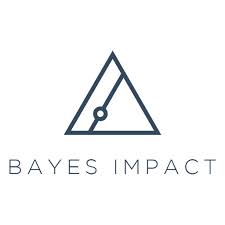Bay Area data scientists have come together to support this big data fellowship
 Imagine that your local ambulance and fire dispatch runs on an algorithm developed with the help of the data scientists who built Lyft’s grid-optimization system.
Imagine that your local ambulance and fire dispatch runs on an algorithm developed with the help of the data scientists who built Lyft’s grid-optimization system.
Bayes Impact, a big data focused nonprofit, launched its fall 2014 fellowship last week to make that actually happen.
Former Eventbrite lead data scientist Paul Duan, nonprofit veteran Andrew Jiang, and former Thomvest Ventures analyst Eric Liu founded Bayes Impact earlier this year.
Bayes Impact’s mentors and advisors hail from Airbnb, Ayasdi, Intuit, LinkedIn, Netflix, OpenTable, Salesforce.com, and Square. Its advisors include Lyft chief technology officer Chris Lambert, Airbnb head of data science Riley Newman, and Intuit vice president of data science Chris Chapo. “On the mentor side, it’s a much longer list; we just haven’t put everyone’s up yet,” Jiang said in an interview with VentureBeat.
More and more non-profits are using data science to solve social problems.
DataSift is partnering with United Nations Global Pulse to analyze social data for humanitarian purpose. Code for America is working on reducing emergency-room calls in Long Beach, Calif., using big data. Rayid Ghani, formerly chief data scientist on the Obama for America campaign, has been running the Data Science for Social Good fellowship for two years.
“Almost all technology companies, no matter their size, use data to their users’ advantage: not-for-profits and governments can and should do the same thing,” Zachary Townsend, founder of the startup Standard Treasury and a Bayes Impact board member, wrote in an email to VentureBeat.
Six fellows are working on four projects in Bayes Impact’s summer pilot program. Two of them were from Zipfian Academy, participating in the program via a partnership between the two organizations.
Initiatives range from detecting fraud and assessing credit worthiness for microlending nonprofit Zidisha to cutting down on recidivism and overcrowding inside California prisons.
Bayes Impact has lined up some projects for the fall program. One project partner, a fire department, will work with the fellowship to predict which buildings will have the highest chance of catching fire, based on building-inspection data.
Much of the funding for Bayes Impact was bootstrapped. Organizers also secured money from a grant. Project partners pay a small amount of money to cover some expenses, too. The good part is that after hearing about Bayes Impact, a lot of funders got interested in funding it.
“Like many not-for-profits, I think that fundraising is the critical challenge,” Townsend said. “Foundations aren’t like venture capitalists, and most donors aren’t like angel investors: They want to see a thoroughly proven model before they give money.
“Bayes Impact is on the path to having very successful projects and significant impact, so I think they’ll overcome this problem.”
Source: venturebeat.com
